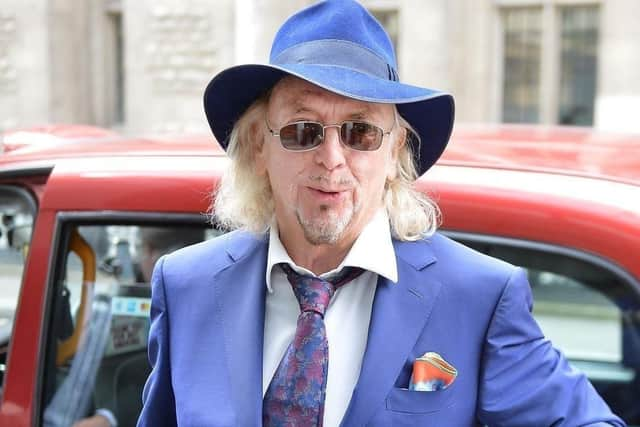Owen Oyston fails in £78m claim against receivers that sold Blackpool FC
and live on Freeview channel 276
The 88-year-old had claimed Paul Cooper and his partner David Rubin under-sold the Seasiders to Simon Sadler for the price of £8.2m.
Oyston brazenly argued the club was worth £59.7m, Bloomfield Road stadium £25m and the Squires Gate training ground £1.5m - making a grand total of £86.2m.
Advertisement
Hide AdAdvertisement
Hide AdOyston claimed the “loss and damage caused” to him was £78m - the amount by which the “market price for these assets exceeded the amount realised by the receivers”.
A two-day hearing to discuss the case at the Business and Property courts in Manchester ironically ended on Wednesday, March 9, a date that coincided with the third anniversary of Blackpool’s homecoming.
This was when Blackpool fans officially ended their boycott following Oyston’s departure from the club, resulting in almost 16,000 fans packing out Bloomfield Road for the 2-2 draw against Southend United.
In February 2019, in the weeks leading up to the supporters’ return, Cooper removed Oyston from Blackpool’s board, ending his 32-year tenure as owner.


Advertisement
Hide AdAdvertisement
Hide AdThat followed a judgement involving former director Valeri Belokon, who Oyston was ordered to pay £31.27m in November 2017.
Since being forced to relinquish his control of the football club, Oyston has been involved in a series of protracted legal matters.
In this latest case, Oyston made a serious allegation of negligence, claiming the receivers had “breached their duty” through the sale of assets of Denaxe, the company formerly known as Segesta that owned the majority of shares in the football club and its related assets.
Rather than sell the club and its related assets in a single sale to one purchaser, Oyston believed the assets ought to have been broken up and sold separately.
Advertisement
Hide AdAdvertisement
Hide AdIn a later amendment to the claim that £59.7m should have been obtained for the club, Oyston, represented by Matthew Collings QC, argued the club was actually insolvent - a claim described as “rather remarkable” in the final judgement.
Denaxe argued the receivers were solely motivated by trying to save the club, rather than “maximising the realisation of the assets”.
The receivers, represented by David Mohyuddin QC, counter-claimed there was “no realistic prospect of the claim succeeding”, which judge Mr Justice Fancourt concurred with.
Justice Fancourt pointed out that his colleague Justice Marcus Smith ratified the transaction of the club sale in 2019, when he found the receivers’ actions were “unimpeachable”.
Advertisement
Hide AdAdvertisement
Hide AdIt was also found Oyston ought to have raised a challenge to whether the receivers had used “reasonable endeavours” to obtain the best market price during a previous court hearing in June 2019 prior to Sadler’s eventual takeover.
Oyston is permitted to appeal the judgement.
A secondary, more trivial claim, of an unlawful copying of a computer hard drive and the loss of an accounts computer has been referred to the County Court.
The receivers argue there is no evidence that they removed the computer from Denaxe’s offices, as well as providing Denaxe with a copy of the entire hard drive at the time of the court-appointed receivership.
It’s understood Oyston has already spent over £1m in failed litigation since the sale of the club.
Advertisement
Hide AdAdvertisement
Hide AdAccording to the judgement, after the club was put up for sale and marketed, 19 parties signed non-disclosure agreements and were granted access to a data room.
Further negotiations with these parties led to three serious offers and one offer of a nominal £1.
One bid was made at a very late stage, which the receivers concluded was not a “reliable bid”.

